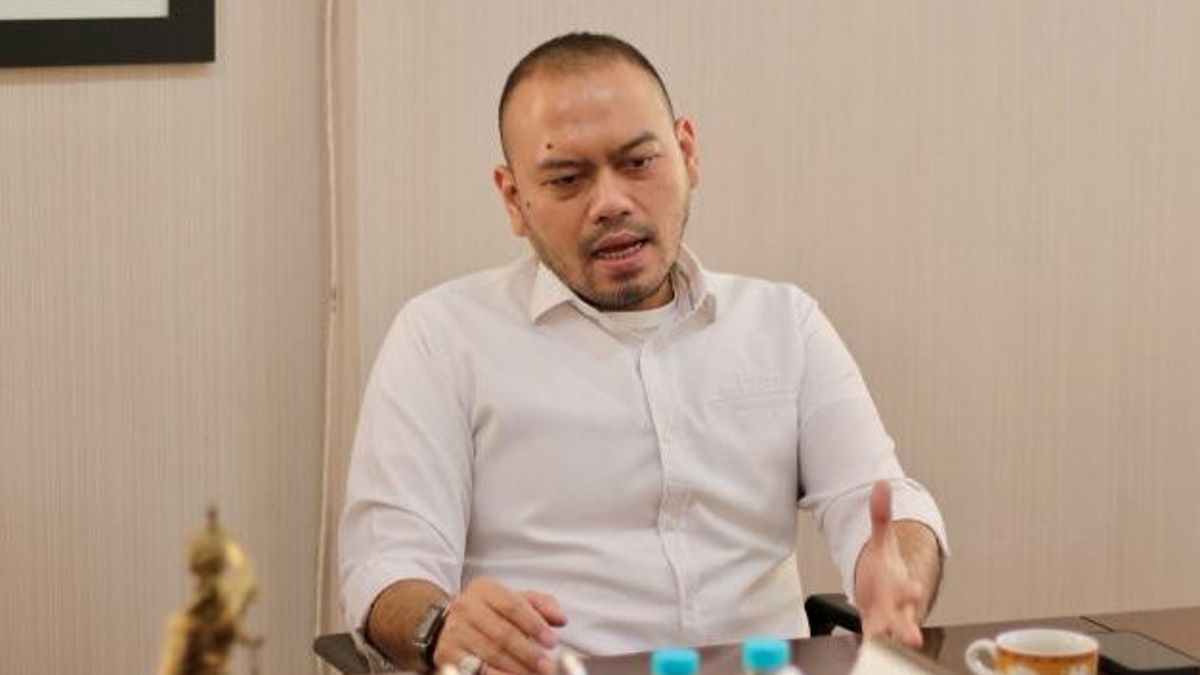JAKARTA - A doctoral candidate for Law and Development at Airlangga University (Unair), Hardjuno Wiwoho, expressed his support for President Joko Widodo who encouraged the DPR to immediately ratify the Asset Confiscation Bill (RUU). As a legal expert who is currently investigating the issue of confiscation of assets without criminal charges, Hardjuno emphasized that this bill is a crucial step in eradicating corruption in Indonesia.
"President Jokowi's move to encourage the DPR to ratify the Asset Confiscation Bill is a must in our efforts to fight corruption systematically," said Hardjuno, in his statement, Wednesday, August 28.
He explained that the confiscation of assets without having to wait for a court decision that has permanent legal force is a very necessary mechanism to avoid the misuse of wealth resulting from a criminal act. Therefore, Hardjuno hopes that the new upcoming government can accommodate the thoughts that have been formulated for quite a long time which are the essence of this Asset Confiscation Bill.
"We must encourage this bill to be passed into law. I support President Jokowi's seriousness. Moreover, for almost 14 years this bill has been deposited in the DPR without any clarity," he said.
In its dissertation, Hardjuno studied in depth the principle of legal certainty in accelerating legal reform against confiscation of assets. According to him, the application of confiscation of assets without criminal charges, or known as Non-Consection Based Assets Forfeiture, will provide an effective tool for the state to immediately return assets that have been misappropriated by criminals.
"Currently, Indonesia does not yet have strict and comprehensive regulations regarding this mechanism, even though we have become parties in the United Nations Convention Against Corruption (UNCAC)," he explained.
Hardjuno also highlighted that the confiscation of assets that was carried out without having to go through a criminal process would accelerate the process of returning lost state assets, while maintaining the principles of justice and legal certainty. Hardjuno emphasized that the need for legal reforms that focus more on efforts to save state assets without having to be hampered by legal processes that take a long time.
"This bill must be prioritized by the DPR, as well as the revision of the Regional Head Election Law which has been discussed quickly. Only then can we ensure that corruption no longer harms the Indonesian people on such a large scale," he added.
As a doctoral candidate at Airlangga University, Hardjuno believes that this regulation will also support Indonesia's efforts to meet international standards in law enforcement and eradicating corruption. Therefore, Hardjuno hopes that the DPR will immediately respond to President Jokowi's encouragement to ratify this bill, in order to strengthen Indonesia's commitment to eradicating corruption.
"This is not only about the law, but also about justice for all Indonesian people," he said.
Even so, Hardjuno in his dissertation also emphasized that legal certainty must be the main basis for the implementation of this asset confiscation.
"Legal certainty ensures that the rules applied in the confiscation of assets are formulated clearly, in detail, and predictablely. This is important to avoid abuse of authority and ensure that individual rights are protected," he explained.
He also highlighted the importance of strict legal procedures and the existence of supervision in the asset confiscation process to ensure that this policy is not misused.
SEE ALSO:
"The right to defense and adequate access for asset owners to prove the validity of their assets must be guaranteed in this bill. This is part of the principle of justice and legal certainty that should not be ignored," he added.
According to Hardjuno, this bill must be in such a way as not to harm innocent individuals.
"Legal certainty is about providing fair protection for all parties involved, including those who may be affected by this policy. Therefore, it is important that this bill be equipped with an independent court mechanism and strict proving procedures," he explained.
The English, Chinese, Japanese, Arabic, and French versions are automatically generated by the AI. So there may still be inaccuracies in translating, please always see Indonesian as our main language. (system supported by DigitalSiber.id)















